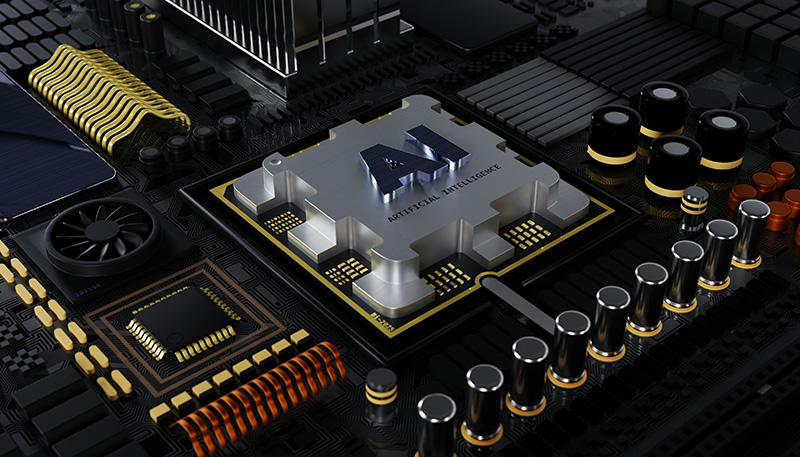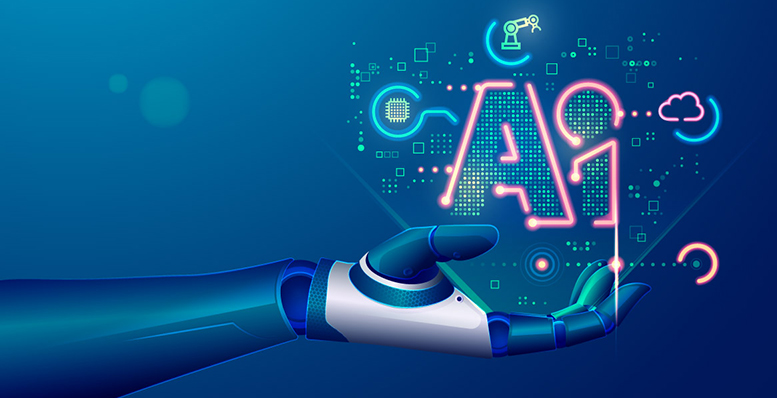
Quantum Computer Stock photos by Vecteezy
Key Takeaways
- Quantum computing is poised to accelerate AI's capabilities far beyond classical computing's limits.
- The combination of quantum computing and AI offers groundbreaking potential across fields like cryptography, security, and healthcare.
- AI improves quantum computing performance through better control, error correction, and algorithm design.
Introduction
Few breakthroughs in computer science have progressed as rapidly as the transformer, a deep-learning model inspired by neural networks in the human brain. First proposed by Google researchers in 2017, transformers have since powered advanced AI systems like ChatGPT, enabling them to generate complex and sophisticated responses. Despite their impressive capabilities, one question has begun to arise: What if AI could run on a quantum computer?
The Global Quantum AI Market Size was Valued at USD 239.4 Million in 2023, expected to reach USD 3.9 Billion by 2033 *
* Spherical Insights
While it may sound like science fiction, researchers are now actively exploring the potential of merging quantum computing with artificial intelligence. This promising new field, known as Quantum AI, could dramatically reshape industries and revolutionize how we solve complex problems, from encryption to chemistry. According to experts, AI models developed using quantum computing are expected to outpace their classical counterparts, offering solutions that were once beyond reach.
So what is Quantum Computing?
Quantum computing uses the principles of quantum mechanics to process information. Unlike classical computers that use bits (1s or 0s), quantum computers use qubits, which can represent 1, 0, or both simultaneously. This enables quantum computers to tackle complex tasks like large-scale simulations, optimization, and cryptography that traditional computers struggle with. Researchers suggest that, while quantum computers may not be a one-size-fits-all solution, they could create a superior attention mechanism capable of handling more sophisticated tasks.
As AI continues to push the boundaries of innovation, quantum computing represents the next frontier in information processing. Together, these two disruptive technologies are set to transform industries, ushering in a new era of computational power and unlocking possibilities that were previously unimaginable.

How Quantum Enhances AI
Quantum computing has the potential to elevate AI to new heights of performance. Quantum neural networks, for example, could teach quantum computers to handle tasks such as anomaly detection and image recognition, which would significantly improve AI's capabilities. Additionally, quantum-inspired methods can reduce the costs and resources needed to develop and train Large Language Models (LLMs), making AI more accessible and efficient.
One of AI’s most powerful tools today is the attention mechanism, which allows AI models to identify and prioritize the most relevant parts of input data, much like how humans process language. For instance, a transformer can recognize that in the sentence "He bought a red car," the word “bought” is more closely associated with “car” than with “red.” This attention mechanism currently runs on classical supercomputers. However, quantum computing could take this ability to the next level.

A key area where quantum computing can enhance AI is in dealing with complex datasets that classical AI models struggle with. For example, AI may perform well in tasks like translating languages but falls short when interpreting tone, context, or artistic style in longer writing pieces. Quantum computing’s unique ability to handle contextual clues through the superposition of qubits could be the breakthrough needed to overcome these limitations.
While quantum computing is still in its early stages, its potential to transform AI is immense. Tech giants like IBM, Google, and Microsoft are already making strides in this area, with applications in fields like pharmaceuticals, cybersecurity, and financial services. Quantum AI, and particularly Quantum Machine Learning (QML), promises to bring faster, more accurate, and more efficient AI models, opening the door to entirely new business possibilities.
Harnessing AI for Quantum Advancements: Key Areas of Development
As the intersection between quantum computing and artificial intelligence deepens, AI is increasingly being leveraged to tackle some of the most complex challenges in quantum computing. Below are some of the key areas where AI is making the most significant impact on quantum computing.
1- Improving Quantum Processors
Quantum processors, or QPUs, are incredibly sensitive systems that require precise control to manage quantum bits (qubits). Even slight environmental noise can corrupt computations, making optimal control crucial for reliable performance. AI is playing a pivotal role here, enabling more effective control sequences and improving the operational quality of quantum processors.
In March 2023, the Cleveland Clinic unveiled the first-ever on-site, privately-owned quantum computer in the United States that is operated by IBM, mainly for medical research. *
* Spherical Insights
2- Managing Large Datasets
Quantum AI has the potential to revolutionize data management, especially as the world generates ever-larger datasets. Quantum computers are uniquely suited to identifying patterns and anomalies in massive amounts of data, something classical computers struggle with. In sectors like healthcare and finance, where data complexity is growing exponentially, Quantum AI could drive breakthroughs in medical research, fraud detection, and traffic optimization, providing solutions that were previously unattainable.
3- Solving Complex Real-World Problems
Quantum computing combined with AI offers unique solutions to some of the most pressing challenges, whether it’s optimizing routes for emergency vehicles, predicting equipment failures, or managing intricate logistical networks. Its ability to process enormous datasets quickly and accurately could revolutionize fields like transportation, pharmaceuticals, and energy, where complex correlations are vital for making informed decisions.

4- Revolutionizing Medical Care
In treating critically ill patients, hospitals often rely on specialist boards to explore and decide on the best treatment options, a process that can be slow and complicated. AI can quickly interpret complex data patterns and learn from diverse medical datasets, while quantum computers can process these insights at unprecedented speeds. This synergy allows for faster, more accurate diagnoses, personalized treatment plans, and optimal recommendations, ultimately improving patient outcomes.
5- Enhancing Cryptography and Security
Quantum computing promises to revolutionize data security by making encryption more robust. It can enhance cryptographic methods through complex calculations, creating algorithms that are resistant to unauthorized access. For instance, quantum algorithms can develop new encryption techniques that are far more difficult to crack compared to classical methods.
AI can help by developing and testing new encryption protocols, predicting potential vulnerabilities, and monitoring for anomalous behavior. Together, quantum computing and AI can both advance and safeguard the future of digital security.

Conclusion: The Impending Revolution of Quantum AI
The convergence of quantum computing and AI represents a monumental shift in how data is processed, problems are solved, and industries evolve. As scientists, governments, and enterprises strive to harness the power of quantum-accelerated supercomputing, it is becoming clear that AI is the key to unlocking its full potential. This collaboration will drive innovation in machine learning, optimization, and contextual understanding, enabling breakthroughs that were previously unimaginable.
With its potential to revolutionize industries like healthcare, finance, and logistics, the question now is: are we ready for this next wave of innovation? Quantum AI is approaching faster than anticipated, and its impact will undoubtedly reshape the future.